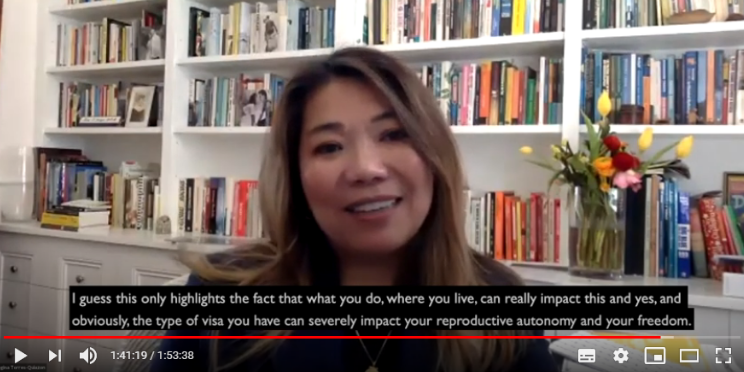
This month we breathed a collective sigh of relief on hearing that the South Australian parliament had finally introduced a bill that would remove abortion entirely from criminal law. This reform would mean that abortion would be treated as a health procedure like any other health issue. Once the bill is approved, all Australian states will have fully decriminalised abortion. It’s a small domestic victory in light of the long histories of sexual and reproductive oppressions women all around the world have endured and continue to bear.
So at this historical moment, our thoughts turn to our sisters in the USA and Poland. In the USA where it is clear that women’s sexual and reproductive health rights and justice has been increasingly under threat. And in Poland, where there are currently mass protests in response to a recent court ruling that said abortion due to foetal abnormalities (for which the majority or 98% of legal abortions are performed in Poland) is unconstitutional.
As we often highlight in WRAP, access in all its forms (whether legal, financial, physical and cultural) is the key to improving the health and wellbeing of migrant women in Australia. And in the case of the abortion, access to choose without stigma, shame, fear and guilt plays a crucial role in a woman’s ability to make an independent and autonomous choice. This is why the erosions to women’s reproductive autonomy in the USA and Poland are literally matters of life and death and concerns all women. To paraphrase Audre Lorde and to tap into her indomitable spirit, we are not free until every woman is free, even when her shackles are very different to our own.
Our differences as women are a positive force and at this particular moment, where the pathways to social justice appear to be more unruly and treacherous than ever, we need to stick together with a clear vision of what we can, together, achieve. How do we remove the shackles of women living in different countries and women living in Australia from different countries? Firstly, we need to see that the shackles are not merely restrictions but profound instances of reproductive injustices.
This is where reproductive justice and autonomy thinking can unite us. Reproductive justice is based on the understanding that the impacts of race, gender, class and sexual identity oppressions are not additive but integrative. Reproductive justice allows us to see that oppressive forms, in and from all parts of the world, don’t emerge or act independently of each other, but depend on each other, feed off each other and gain strength from each other. A migrant woman’s difficulty accessing safe abortion will not be effectively addressed by donations and funding campaigns to assist with costly medical bills. If we use a reproductive justice approach, we need to ask, why don’t migrant women have affordable access to abortions in the first place?
To find out more about MCWH’s approach to reproductive justice and autonomy, view Dr Regina Torres-Quiazon’s presentation at the ‘Addressing Reproductive Coercion’ Forum run by Women’s Health Victoria and Women’s Health in the North
